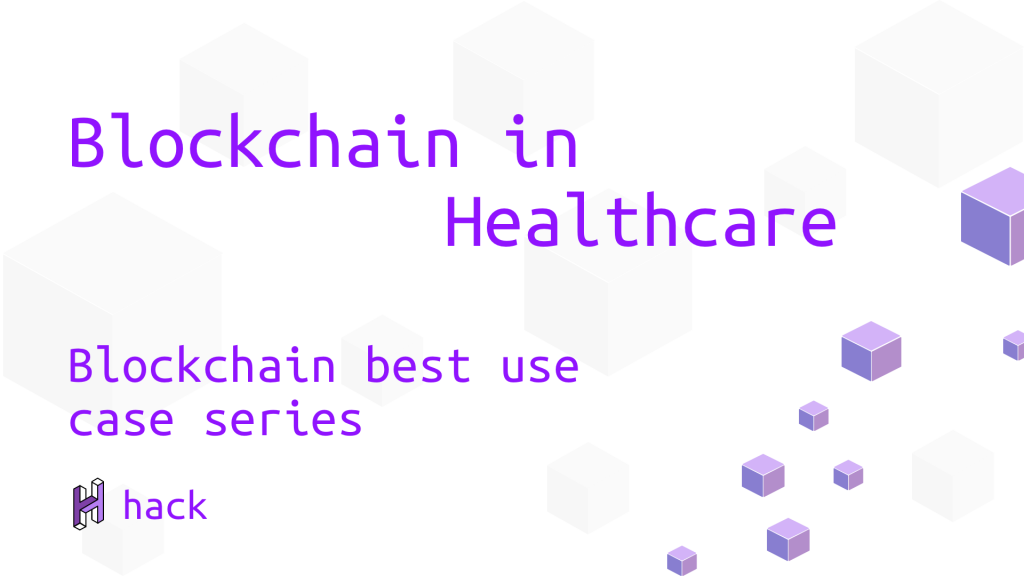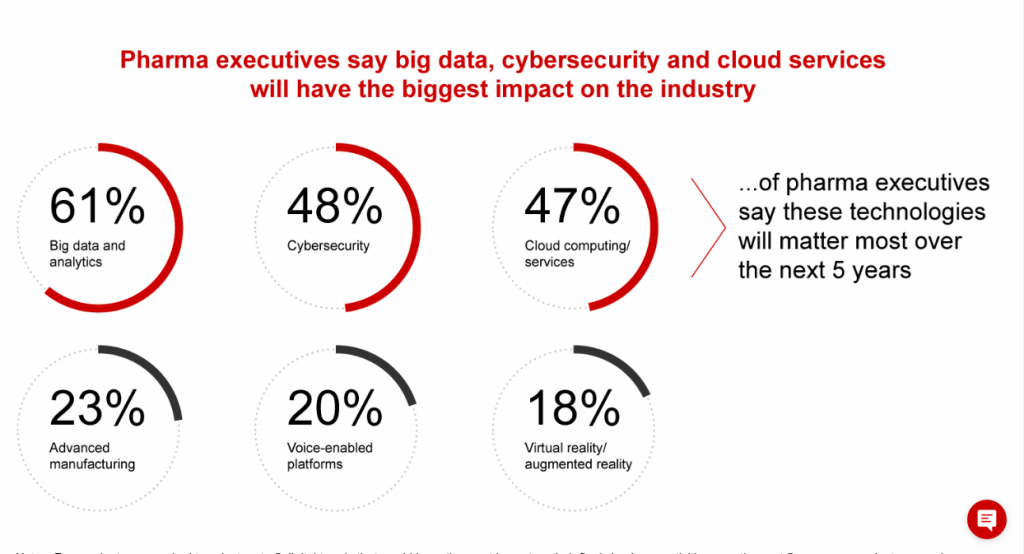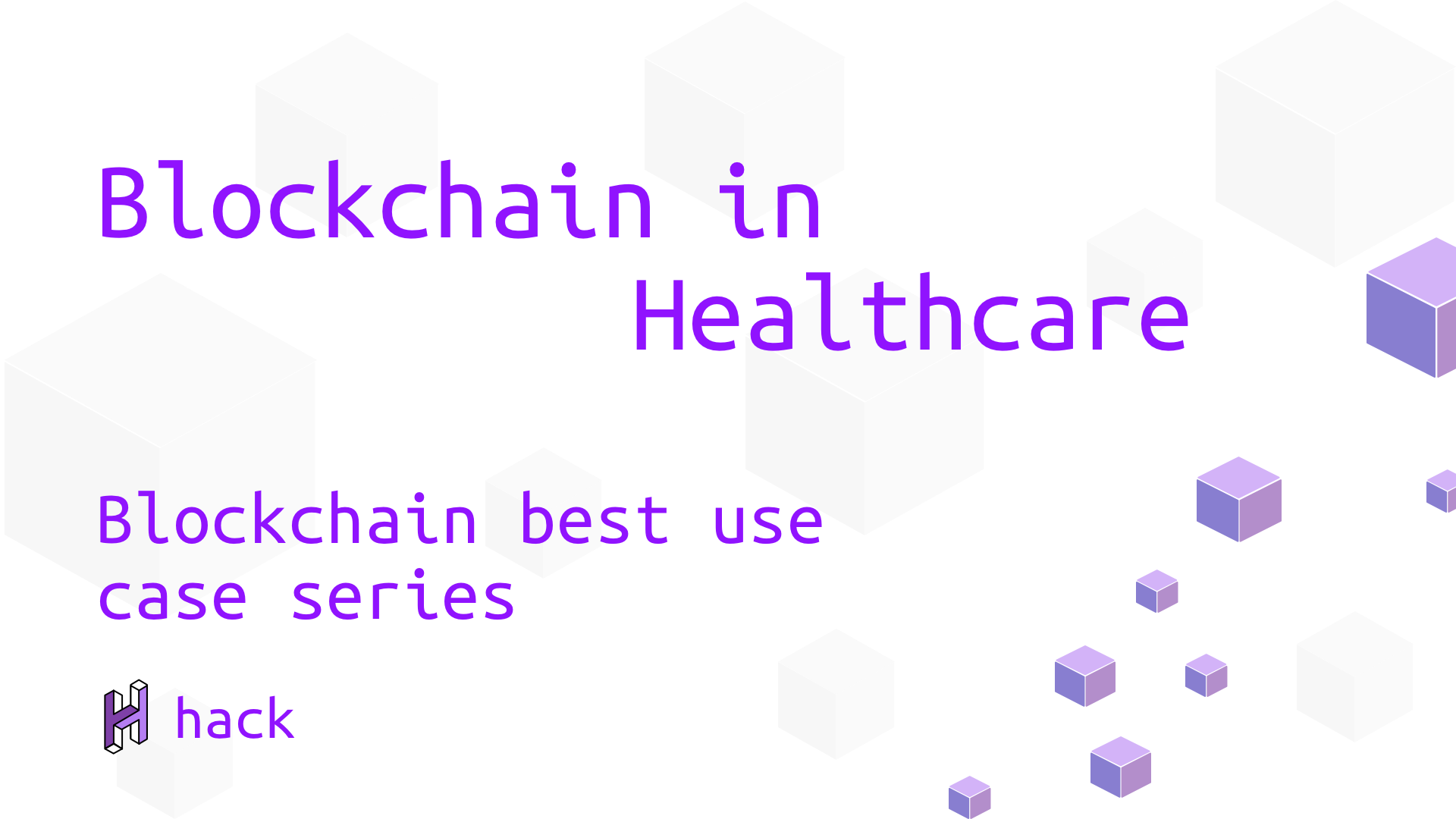Blockchain’s Best Use Cases

Disrupting industries with blockchain technology.
What is blockchain?
Blockchain is a digital ledger keeping a record of all transactions in chronological order. Additionally, it is immutable and transparent. In some of our previous articles, we have looked in details into the tech behind and the idea of blockchain. Following the series of blockchain’s best use cases and disrupting industries with blockchain technology in this next article, we are going to explore how the healthcare sector can benefit from integrating blockchain.
Healthcare in numbers
Healthcare is a complex ecosystem composed of Drug manufacturers, Medical equipment makers, Managed healthcare companies providing health insurance policies and Healthcare facility firms operating hospitals, clinics, etc.
Global spendings in healthcare all sectors combined:
- 2015 Global healthcare spending topping $7 trillion dollars
- Expected to grow to over $8.734 trillion by 2020 and to over $10 trillion by 2025
According to a report by BIS research.
“A global blockchain in the healthcare market is expected to grow at a CAGR of 63.85% from 2018 to 2025, to reach a value of $5.61 billion by 2025. The use of blockchain for healthcare data exchange will contribute the largest market share throughout the forecast period, reaching a value of $1.89 billion by 2025, owing to the use of blockchain to solve the most widespread problem in healthcare information systems related to interoperability and non-standardization that has created data silos in the industry.”
* CAGR ( Compound Annual Growth Rate)
What are the current problems in the Healthcare sector?
Non-startartisation
Data is the next big thing that is going to revolutionize public healthcare and more specifically how the data is recorded, stored, analyzed and shared. But the current systems, if existing, are inefficient because they are centralized (all information kept in one place), siloed and disjointed. Moreover, they are inefficient because they are not allowing for easy sharing of patients data outside of the host institution without exposing the data at a security risk. In addition, health data is hard to make sense of as it’s often times presented in different formats, according to industry experts.
Interoperability
Another problem putting patients health at risk caused by healthcare systems is the interoperability issue:
“Statistics show that up to one in five patient records are not accurately matched even within the same health care system. As many as half of the patient records are mismatched when data is transferred between healthcare systems.”
Director of Center for Biomedical Informatics (CBMI), Shaun Grannis
Data ownership and control
Today patients information is not in their control. This might have been accepted up until now but in the future patients might claim their right to have access to their personal information and to control it. At the current setting, their information is gathered and managed by their host institution.
Drug traceability
Drug counterfeiting is a major problem in the pharmaceutical industry. According to the Health Research Funding Organisation:
- 10% to 30% of the drugs sold in developing countries are counterfeit
- The counterfeit drug market is worth $200 billion annually
From a more economic perspective, drug counterfeiting represents an annual loss of 10,2 billion euros (11,23 billion USD) for the European pharmaceutical sector and 37.700 jobs are lost because manufacturers employ fewer people than they would if fake drugs didn’t exist.
How blockchain can solve those problems?
Blockchain is still a developing technology but we can already see the huge impact that it has in various sectors and industries like Finance and Supply Chain. Healthcare is just another example where we can see its implication:
The adoption of the blockchain technology could save the healthcare industry up to $100-$150 billion per year by 2025 in data breach-related costs, IT costs, operations costs, support function costs and personnel costs, and through a reduction in frauds and counterfeit products.
BIS report
According to pharma executives technologies are the one that are going to have the biggest impact on the industry.

In its core blockchain is immutable, search-ready (big data and analytics), cryptographically protected (cybersecurity) and distributed system (cloud-like service). This is why blockchain is the perfect all-in-one solution.
The new generation of blockchains is solving the standardization and interoperability issues by design. Allowing, via a specific protocol the communication between multiple blockchains. This in the future will be crucial when dealing with different blockchain enabled solution for the healthcare industry.
In addition, blockchain also addresses the notion of data ownership and control. With the help of a smart contract (programable agreement), the patient can manage his data ( identifiable and non-identifiable) and share whatever he likes to share with whomever he likes to share it.
In a recently written article, we have discussed the potential use of blockchain in Supply Chain and addressed the issue of drug traceability. In short, we are reducing the possibility to buy a counterfeit drug by tracking the item with the help of IoT sensors and blockchain from the producer’s factory to our door.
Besides the above mentioned problems, blockchain can also help the healthcare with payments and help to speed the verification of patient’s healthcare plans.
“Blockchain will become the next big healthcare technology innovation, particularly as it relates to payments and payer contracts. For example, in a situation when a health plan and patient are dealing with a contract, the blockchain can automatically verify and authorize information and the contractual processes. With transparency and automation, greater efficiencies will lead to lower administration costs, faster claims and less money wasted.”
Bruce Broussard, president and CEO of Humana
Once the payment process is automated in a trusted, transparent and verifiable way we will notice improvement of the whole process by reducing claim times and lowering administration costs.
Having all information on a single platform is going to allow for deep analysis of population health and trends. Thus helping all parties to make more accurate planning and strategies, allowing them to deliver better, faster and more cost efficient services to the patients.
To get the next article about Blockchain and Business directly in your inbox subscribe to our newsletter.
If you have a great idea — but you don’t have the skill to build it – get in touch with us at hello@hack.bg.
Take a look at the full list of our services on our website.
We bring ideas to life.



